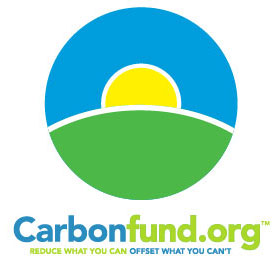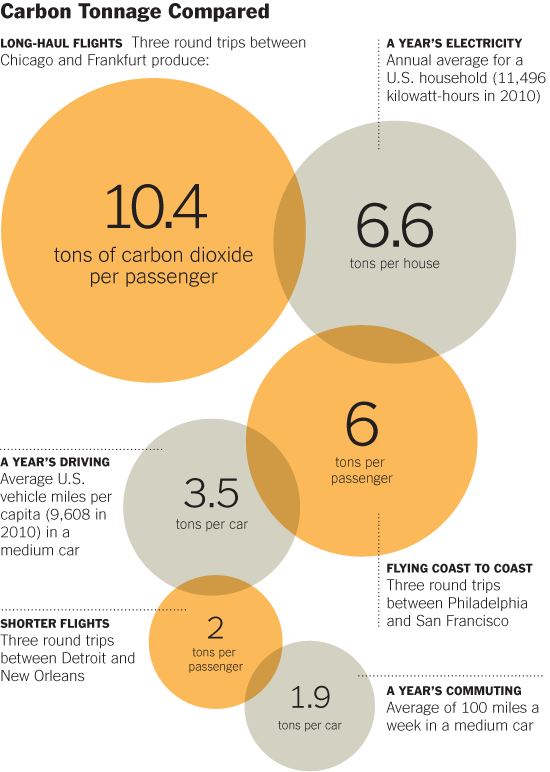For those who aren’t familiar, commercial air travel generates a LOT of carbon emissions. I’ve posted a graphic below that illustrates the point well. Compared to the emissions generated when driving, something we seem to hear a lot about (and we should given the number of cars on the road), air travel has the potential to be much worse. If you travel by air a couple of times domestically in a year, you’re likely generating higher emissions than all your driving in that year combined. So you can imagine the emissions generated when five RHC members fly around the world to Ghana!
A option to mitigate these emissions was brought to my attention by Nick Gideonse, the medical director at the clinic where I work and a regular RHC supporter, in the form of carbon offsets (to read more click here). Carbon offsets essentially neutralize an individual’s or companies’ contribution to global warming by generating emissions reductions someplace else. This is done through the funding of projects around the world that reduce emissions, such as:
- Capturing methane gas produced by cow manure or landfills so it isn’t released into the environment
- Building wind farms that reduce the consumption of coal
- Planting trees (although this is often criticized because these offsets aren’t really generated for years or even decades)
- Supporting programs to reduce building emissions or promote fluorescent lightbulb adoption
- Increasing the distribution and uptake of clean burning cookstoves in developing countries
To create true carbon offsets, these programs must be created above and beyond the good work already being done to offset emissions. In other words, if a program is already in place to promote the adoption of fluorescent lightbulbs, for instance, the reduction in emissions this program generates cannot be sold as carbon offsets to people looking to offset their own emissions. That would be double counting because the program would have happened anyway. True carbon offset projects must be undertaken because folks are purchasing offsets, thereby generating funding for new projects that will further reduce carbon emissions above and beyond what would happen anyway.
Carbon offsets are often criticized. Some argue they are merely a bandaid, because the emissions are still generated, and suggest that prevention is the best strategy. Others argue carbon offsets actually encourage people to create more emissions because they can simply buy offsets and feel better about all the emissions they are generating. Still others bring up the (arguably valid) point that carbon offsets are not sustainable. They argue that it is easy and cheap to generate offsets right now because we are so inefficient in the first place, but that as we become more efficient it will become prohibitively expensive to generate new offsets, and thus that carbon offsetting is not a long-term solution. Predictably, they argue that prevention is the best approach.
I’ve struggled with all these views and settled on my own.
It is important to reduce/prevent the emissions I directly produce by turning off lights, taking faster showers, biking to work, and avoiding flights when driving or staying home will do.
However, when generating emissions is inevitable, such as when I fly to Ghana to work with RHC, buying carbon offsets for those flights is an important aspect of my effort to reduce those emissions and reduce my impact on the environment.
The emissions for our five RHC flights in June correlate to a total cost in carbon offsets of nearly $250. This amount was generously donated by Nick Gideonse, mentioned above, and we are grateful not only for his donation but also for improving our awareness of the impact RHC is making to the environment when we travel.
After much research, we have decided to purchase these offsets from Carbonfund.org, a carbon offset non-profit, and put the funds toward renewable energy and methane destruction projects. If you have comments about this post, carbon offsets, or RHC’s response to our environmental impact, please comment below or email me at jason@rhcollaborative.org. Thanks for reading!
Jason





